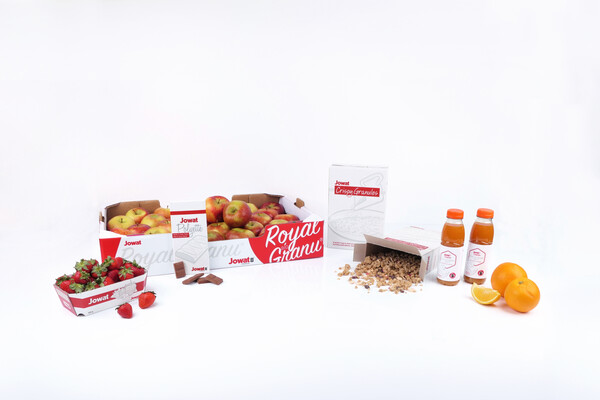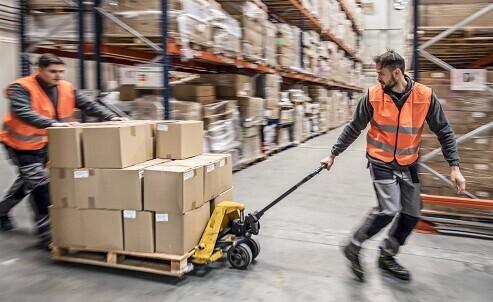Packaging that Adheres to Environmental Standards - Global adhesives manufacturer Jowat optimises packaging
Jowat is a leading international supplier of adhesives for use in manufacturing and the skilled trades. From its headquarters in Detmold, this family-owned business supplies a broad portfolio of adhesive solutions to customers in over 80 countries throughout Europe, the Americas and Asia. Sustainability and environmental responsibility have long been integral to company strategy, and the responsible handling of packaging is no exception here. By partnering with Interzero, Jowat is helping to advance the circular economy for both product and transport packaging.
“As a business, we understand sustainability to mean acting responsibly with the aim of aligning our long-term success with a sustainable future for society and the environment,” says Christian Terfloth, member of the Jowat management board.
In this brief interview, he explains how Interzero is accompanying Jowat on this journey, and where there is still work to be done in preparation for the EU’s Packaging and Packaging Waste Regulation (PPWR).
Which areas are Jowat and Interzero currently working on, and what are the key features of this partnership?
Terfloth: We see sustainability as both an opportunity and a long-term strategic driver for the success of Jowat Group. That’s why we’ve worked with Interzero for over 15 years on the collection and recycling of transport packaging, packaging containing hazardous substances and consumer packaging from the German dual systems. This partnership ensures we achieve a professional level of recycling and meet our legal obligations under the German Packaging Act. In addition, we receive Interzero’s comprehensive and competent support – and a valuable external perspective.
Over the next few years, the PPWR will introduce strict new rules for recyclability and the use of recycled content. How is Jowat preparing to meet these new requirements?
Terfloth: We’re already working closely with the experts at Interzero to make sure we address every aspect of the PPWR. As one example, we are seeking advice on how to design our packaging to be more recycling-friendly. We’re also assessing the extent to which we can further increase the share of recycled content in our plastic packaging to help conserve natural resources. Our collaboration with Interzero also covers regular consultations on broader aspects of European legislation.
And beyond the PPWR? What challenges do you face as an international manufacturer – in relation to packaging licensing, for example?
Terfloth: As producers move beyond their domestic markets, they typically face a wide array of regulations that vary from country to country. Having a partner who understands these cross-border challenges and is themselves active internationally is a tremendous asset. Recently, we expanded the scope of our cooperation now also license packaging with Interzero in Spain. We’re also working with Interzero to identify other countries that are set to introduce new legal obligations. Interzero always provides us with in-depth advice, which really helps us stay on top of things.
How important is sustainability measurement to Jowat?
Terfloth: Sustainability requires transparency and reliable data. That’s why Interzero commissions Fraunhofer UMSICHT to produce its pioneering ‘resources SAVED by recycling’ study every year. The results show us – in black and white – how we’re cutting carbon emissions and how we’re saving primary resources. By providing scientific evidence of the positive environmental impact of our collaboration, this report forms a key part of credible sustainability management.



![[Translate to English - Englisch:] [Translate to English - Englisch:]](/fileadmin/_processed_/1/4/csm_230606-AGA-Tridi-Indonesia-PET-recycling_e3dcd2ad90.jpg)
![[Translate to English - Englisch:] [Translate to English - Englisch:]](/fileadmin/_processed_/d/e/csm_230302_AGA-VietCycle_800x533_4545226899.jpg)
![[Translate to English - Englisch:] [Translate to English - Englisch:]](/fileadmin/_processed_/6/c/csm_240103_Rebranding_ALRE-AVL_800x533_35094750af.jpg)